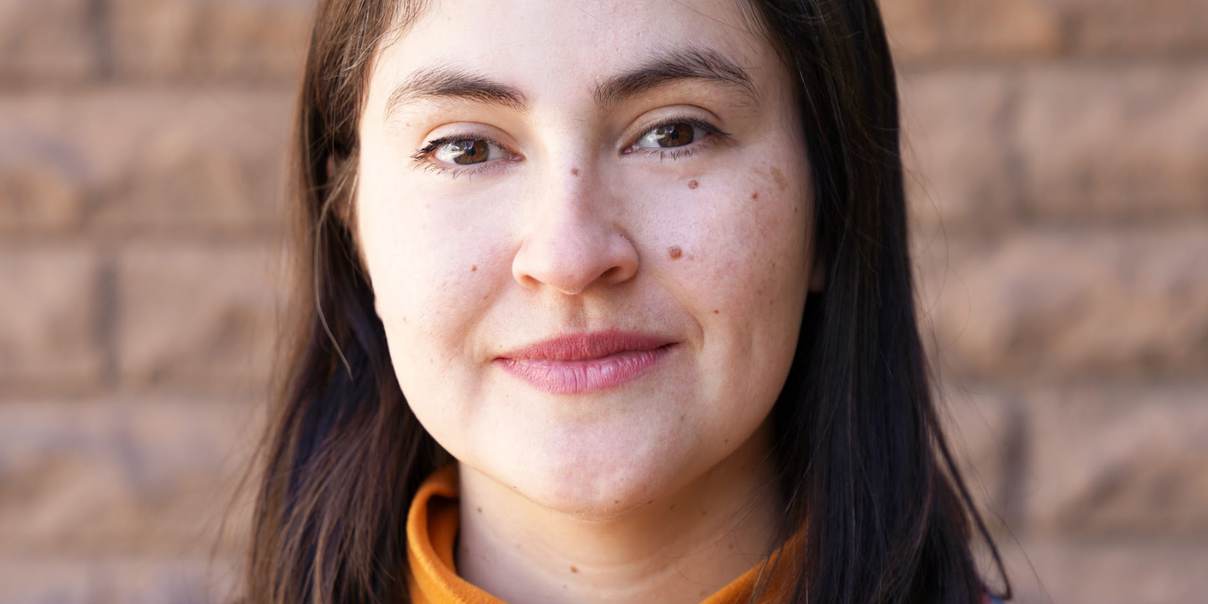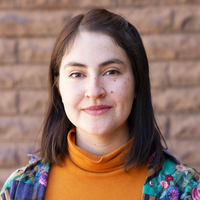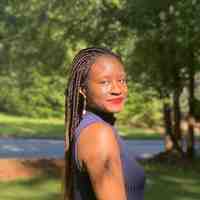
Checking in with María Fernanda Videla Urra
Meet the Participants

Maria Fernanda Videla Urra studied acting at PUC Theater School in Chile. She founded "La Doña" company in Chile, where she worked as an actress, director and designer: selections included Der Herr in den Nebeln (2009), Nelly's Bar (2010), Apocalisis When? (2012) and Antares After the Light (2014). As a Stage Designer, she has worked with several emerging Chilean companies: La Letra Rota, Tres son Multitud, and the National Theater production Aquí no se ha enterrado nada(2013). Villa + Discurso (2011) was her first design work to tour internationally. She is studying for her MFA in Scenic Design at CalArts.

Charlene Adhiambo (she/her/hers) is a Kenyan American writer currently based in her hometown of Atlanta. Her one-act play Guardian was read at Saudade Theatre’s Re-Descobrimentos Festival in July 2020. Her creative work spans many mediums including (but not limited to), screenplay, stage play, fiction, essay, poetry, and song. While the containers and even genres of her work change, constant themes are mother- and daughterhood, black girl- and womanhood, friendship, romance, and grief. She writes in a space somewhere between Ray Bradbury and Toni Morrison, two of her favorite authors. When not writing, she is listening to R&B music, teaching herself guitar, or doing yoga. She received her B.A. in Creative Writing and English Literature from Columbia University.
CA: First off, how are you doing?
MVU: I’m hoping for the spring to arrive here in the south of Chile. I’m pretty overwhelmed by the news around the world, so I suppose I’m navigating different emotions.
Your mannequin becomes a social media influencer in quarantine, which gives him an audience with which he can connect. What are ways that you have been able to connect to other artists and your loved ones?
I have had a very introverted experience lately. I connect with friends on video calls, but I’m focused on parenting my two year old toddler and working. By the end of the day there is not much time to connect with other artists.
The mannequin’s social media presence is something new he tries, due to the isolation, but also the boredom. Have you picked up any new skills or hobbies?
I’m trying to develop some skills related to home and daily aspects of life. I never experience boredom, but I have tried to create a vegetable garden with not much success. Also baking bread and cookies with my daughter, but I stopped when I realized how much weight I gained.
In your film, your mannequin discovers he is a material. What are ways that humans are facing our ‘material identity’, or our limitations, right now?
This is a very deep question. I realized every week a different aspect of my own material identity. I have the feeling we are experiencing a dark period of history, but the most important thing I see in different aspects of life has to do with how our society is excessively immersed in the individual. The lack of a social project manifests in our current world crisis, and we need to examine why.
Although quarantine is forcing people at large to face mortality and our limitations more closely, is there a positive to this? For instance, your mannequin discovers he is not as in control as he believed, but he also discovers he is part of the Earth. Yes, wood is burned, but also, trees abound. What are the strengths and possibilities in his and human limitations?
I constantly feel I’m living in a polarized world. Today, this polarization is for me a response to the social crisis. It is hard to be positive today, which is an exercise we need to practice, but I feel the crisis is a possibility to make change, to rediscover our priorities and modify ourselves from the ground up. The mannequin in a way discovers the complex network we live in, and that is the beginning of his own change of paradigm.
Interview by
Charlene Adhiambo